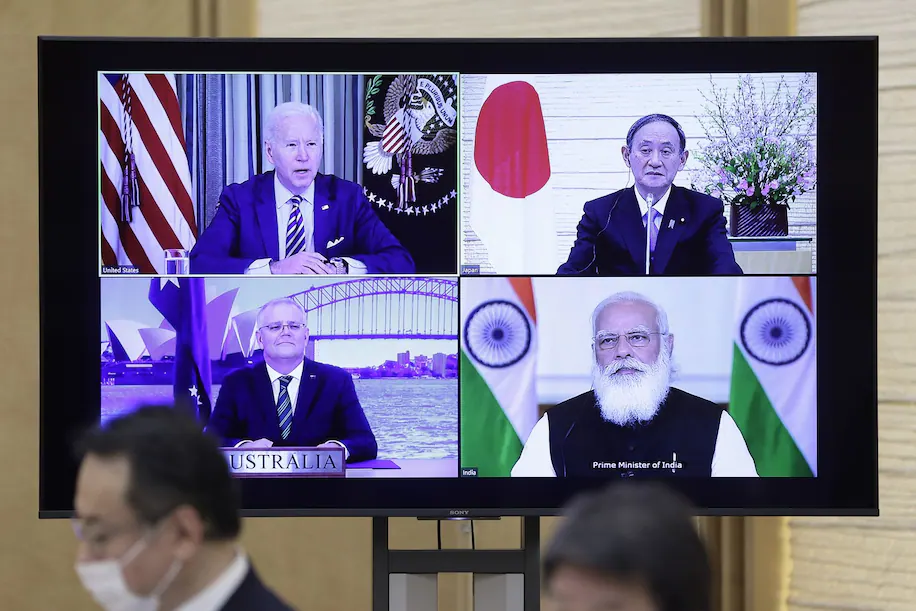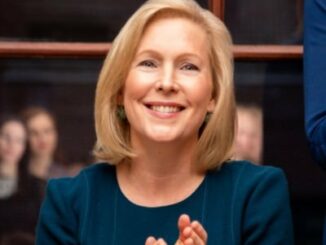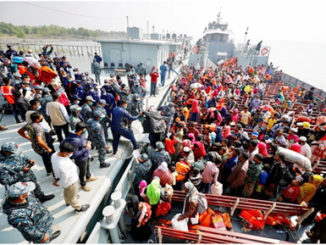
France has voted, Europe is relieved, and the French President needs to move fast to douse the flames of polarization

“Having secured his second term, Mr. Macron urgently needs to douse the flames of polarization. The 72% turnout on Sunday is the lowest in a presidential run-off since 1969. In addition, of the 34.5 million votes cast, the three million blanks or spoilt ballots reflect disenchantment with both candidates. Mr. Melenchon has declared that Macron’s presidency ‘is floating in a sea of abstentions and blank or null ballots’. Over a third of the voters did not vote for Mr. Macron and many left-leaning voters only did so because they hated the far-right Ms. Le Pen more.”
Last Sunday, French voters gave President Emmanuel Macron his second term and Europe heaved a collective sigh of relief. Though Mr. Macron scored a convincing victory over his far-right-wing challenger, Marine Le Pen, his victory margin diminished when compared to the 2017 run-off, from 66% to 58.5%, while Ms. Le Pen improved her score from 34% to 41.5%, reflecting the changing character of French politics. Nevertheless, given that only two popularly elected Presidents have won second terms (François Mitterrand in 1988 and Jacques Chirac in 2002), Mr. Macron has reason to feel chuffed. European Union leaders, facing twin challenges of the Russian war in Ukraine and a tepid recovery from COVID-19, have enthusiastically welcomed Mr. Macron’s victory given Ms. Le Pen’s overt Euroscepticism.
A changing politics
France’s two-step voting process means that in the first round, voters express their real preferences; in the second round, with the field narrowed to two, they reject the one they dislike more. At the beginning of the campaign in February, there were a dozen candidates, but by the end of March, most were fizzling out. The first round, held on April 10, showed the decimation of the two traditional parties that have ruled France since the 1960s, the center-right Republicans and the center-left Socialists. Republican candidate Valérie Pécresse, who had been part of Jacques Chirac’s team and was later a Higher Education Minister, managed a 4.8% vote share, while Socialist candidate Anne Hidalgo, mayor of Paris since 2014, got a mere 1.7%. From the days of Socialist Presidents like Mitterrand and Hollande, and Republican Presidents like Sarkozy, Chirac and Valéry Giscard d’Estaing, this was a rout. These two parties have been losing ground, from a collective 56% of the vote in the first round in 2012, to 27% in 2017 when Mr. Macron emerged on the scene and captured the imagination of voters as a pro-Europe, business-friendly, forward-looking liberal. In 2017, this enabled him to redefine the Centrist vote, successfully poaching from both the Republican and Socialist bases.
Five years later, Mr. Macron had a record to defend and counter the image of being a pro-rich, aloof and elitist President. His response to the gilets jaunes (yellow vest) protests lacked empathy. Ms. Le Pen capitalized on this by seeking to appear more human and approachable, a single mother and a cat lover.
A rough campaign
In the first round on April 10, Mr. Macron led with 27.8%, followed by Ms. Le Pen with 23.1% and left-wing populist Jean Luc Mélenchon (France Unbowed) with a credible 21.9%. Extreme-right-wing journalist turned candidate Èric Zemmour, whose presence helped Ms. Le Pen appear relatively moderate, also got 7% vote. Other mainstream candidates Jean Lasalle, formerly MoDem (Democratic Movement) and Yannick Jadot (Greens) only managed 3.1% and 4.6%, respectively. The fact that far-right and far-left parties accounted for 58% of the vote in the first round reflects the growing polarization in domestic French politics. Centre-left voters switched from Ms. Hidalgo and Mr. Jadot to Mr. Melenchon and center-right from Ms. Pecresse to Mr. Macron.
The slow rightward drift in French politics has sharpened since the terrorist attacks in 2015 and the consequent debates on identity and laïcité (French version of secularism) emerged as key themes in the early weeks till the Ukraine war and rising cost of living assumed priority.
Mr. Zemmour’s campaign exploited the ‘great replacement’ theory, (originally propounded by Renault Camus) — that the non-white, non-Christian and non-French are gradually replacing the white Christian French population. Mr. Zemmour grew his base by asking young French people if they were willing to live as a minority in the land of their ancestors. Ms. Le Pen, conscious of the need to retain her base lest they drifted to Mr. Zemmour, promised a ban on the hijab (headscarf) and a constitutional amendment that would distinguish between “native born French” and “others” for access to education, housing and other social benefits, and restricting citizenship to only those who have “earned it and fully assimilated.”
Mr. Macron was late to join the campaign, thinking that he could ensure support by appearing presidential, involved with the geopolitics of the war in Ukraine. Since December when tensions began rising, he has had nearly two dozen telephone conversations with Russian President Vladimir Putin, visited Moscow and Kyiv and had multiple exchanges with North Atlantic Treaty Organization and European Union (EU) leaders. He filed his candidature on March 3, a day before the deadline and spent little time on the campaign trail before the first round. His poll ratings slipped from 30% in early March by five points leading to a strategy shift.
It was only in April that Mr. Macron realized that the “progressive liberal centrist” platform that had delivered victory in 2017 was no longer working. The field was dominated either by a utopian extremism of the Left or a nationalist extremism bordering on racism on the Right. Mr. Macron began to talk about building a ‘dam’ to preserve the Centre. To shift the debate from ‘identity’, he promised full employment in five years, tax cuts for households and small businesses and softened his stand on raising the retirement age from 62 years to 65, spreading it over a nine-year timeframe.
For the second round, the debate turned personal. Mr. Macron highlighted Ms. Le Pen’s ties with Mr. Putin, describing him as her ‘banker’, called her a ‘climate sceptic’, blamed her policy as ‘spelling the end of the EU’ and made the election a ‘referendum on secularism and Europe’. Ms. Le Pen blamed him for ignoring the rising cost of food and fuel and declining pensions, sought a ‘Europe of nations’ rather than an EU, called him ‘a climate hypocrite’, and the election a referendum on “Macron or France’.
The obstacles, from June
Having secured his second term, Mr. Macron urgently needs to douse the flames of polarization. The 72% turnout on Sunday is the lowest in a presidential run-off since 1969. In addition, of the 34.5 million votes cast, the three million blanks or spoilt ballots reflect disenchantment with both candidates. Mr. Melenchon has declared that Macron’s presidency ‘is floating in a sea of abstentions and blank or null ballots’. Over a third of the voters did not vote for Mr. Macron and many left-leaning voters only did so because they hated the far-right Ms. Le Pen more.
National Assembly elections are due in June and if the Left take the Assembly, Mr. Melenchon could become Prime Minister; a prospect of co-habitation that ensures policy gridlock. In such a scenario, polarization will only increase and Mr. Macron’s centrist experiment would be a short-lived reprieve from the rightward shift.
That is why at his victory speech at the foot of the Eiffel tower, Mr. Macron struck a conciliatory note, thanking those who helped defeat Ms. Le Pen and “promising to be a president for all.”
Relief in Europe, India
Such was the concern in Europe about the election that in an unprecedented move, the Portuguese and Spanish Prime Ministers, António Costa and Pedro Sánchez, and German Chancellor Olaf Scholz co-authored an Op-Ed in the Le Monde on April 21, urging French voters to reject Ms. Le Pen. The congratulatory messages pouring in from western capitals reflect relief as a Le Pen victory would have severely damaged western unity, at a critical moment in Europe. India too has reason to be happy with Mr. Macron’s victory. India and France have enjoyed a solid strategic partnership, established in 1998 that has expanded to cover cooperation in defense, nuclear and space sectors, climate issues and renewables, cybersecurity and counterterrorism. A French presence in the Indo-Pacific has prodded the EU too to shift towards an Indo-Pacific strategy. Prime Minister Narendra Modi will be travelling to Germany and Denmark on a bilateral visit in the first week of May. It provides a welcome opportunity to spend a day in Paris to congratulate Mr. Macron and impart new momentum to the relationship.
(The author is a former diplomat who served as India’s Ambassador to France and is presently Distinguished Fellow at the Observer Research Foundation)





Be the first to comment